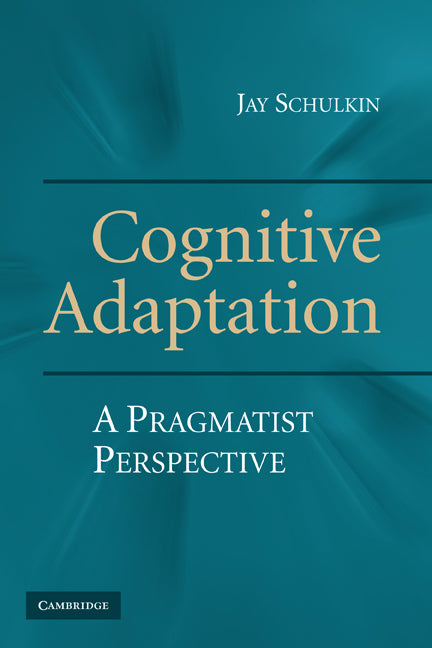Freshly Printed - allow 8 days lead
Couldn't load pickup availability
Cognitive Adaptation
A Pragmatist Perspective
Argues that there is a fundamental, evolutionary link between cognitive systems and evolution that underlies human activity.
Jay Schulkin (Author)
9780521517911, Cambridge University Press
Hardback, published 22 September 2008
210 pages
22.9 x 15.2 x 1.6 cm, 0.45 kg
“Perhaps the most pressing long-term challenge for cognitive neuroscience is the development of a theory that addresses the mid-level between neural systems and consciousness and that explicates their relationship. Jay Schulkin is one of a few people who has both the biological and philosophical background to take on this challenge. His powerful and provocative theory, which he calls cognitive adaptation, will deeply influence those who follow in this difficult and exciting work.”
—Jonathan D. Moreno, David and Lyn Silfen University Professor, University of Pennsylvania
Cognitive Adaptation: A Pragmatist Perspective argues that there is a fundamental link between cognitive/neural systems and evolution that underlies human activity. One important result is that the line between nature and culture and scientific and humanistic inquiry is quite permeable - the two are fairly continuous with each other. Two concepts figure importantly in our human ascent: agency and animacy. The first is the recognition of another person as having beliefs, desires, and a sense of experience. The second term is the recognition of an object as alive, a piece of biology. Both reflect a predilection in our cognitive architecture that is fundamental to an evolving, but fragile, sense of humanity. The book further argues for a regulative norm of self-corrective inquiry, an appreciation of the hypothetical nature of all knowledge. Schulkin's perspective is rooted in contemporary behavioral and cognitive neuroscience.
1. Cognitive adaptation: objects and inquiry
2. The human situation: uncertainty and adaptation
3. Time and memory: historical sensibilities
4. Education: learning from others, neurogenesis
5. Cognitive and neurobiological basis of religious inquiry.
Subject Areas: Neurosciences [PSAN], Cognition & cognitive psychology [JMR]


